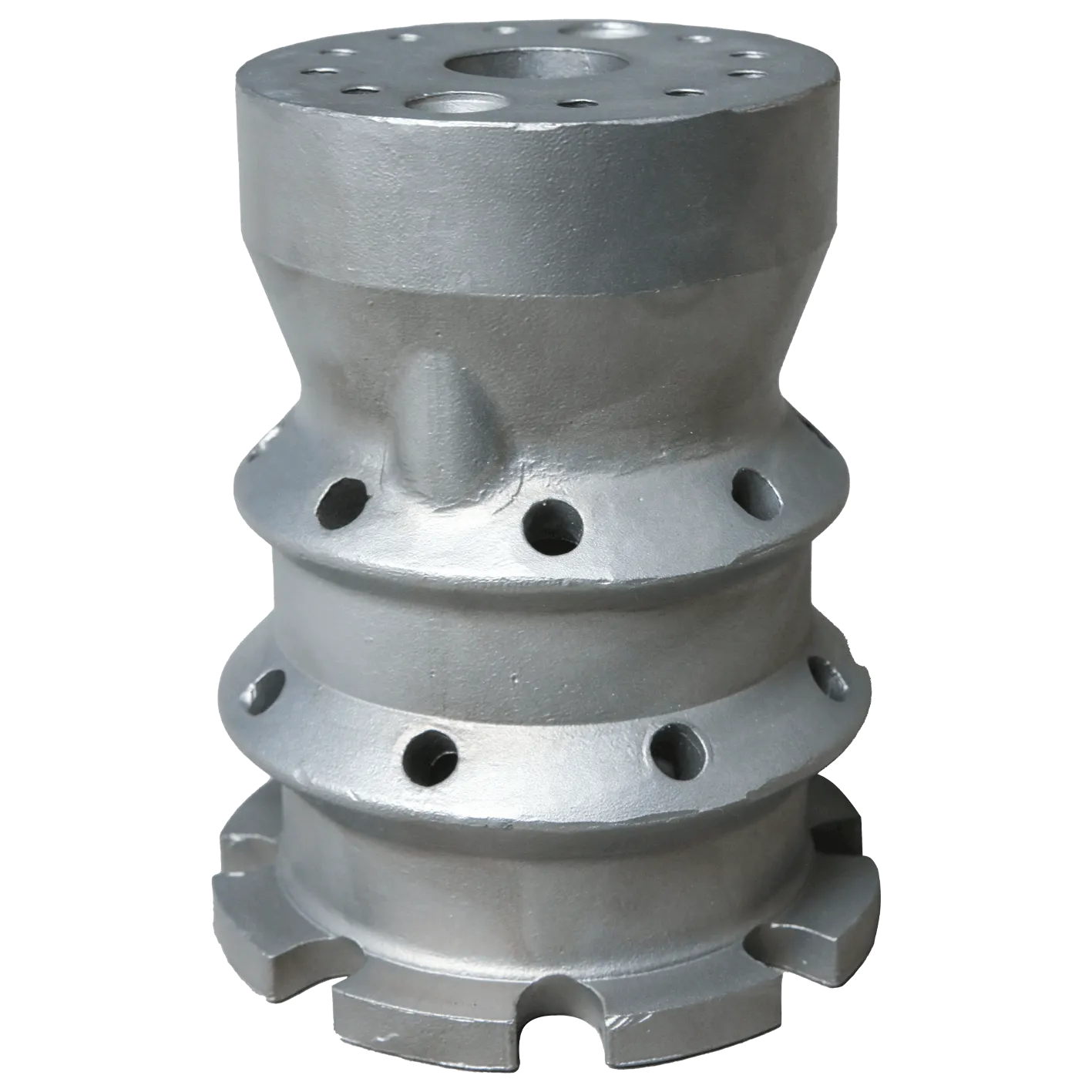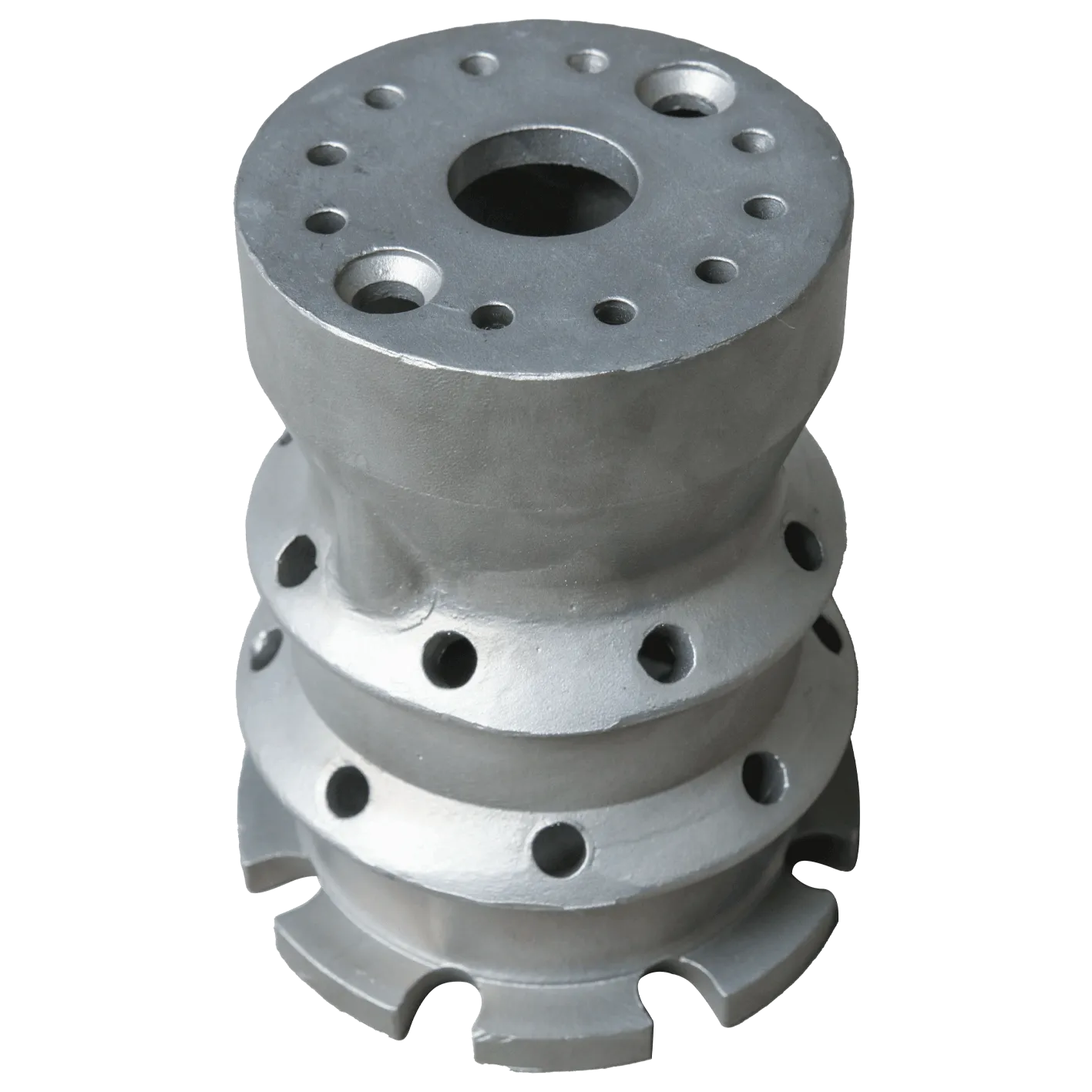Mobile:+86-311-808-126-83
Email:info@ydcastings.com
Spanish
Precision Metal Castings: Aluminium, Stainless Steel & Die Casting
The Foundation of Industry: Understanding metal castings
Metal castings represent a cornerstone of modern manufacturing, providing the foundational components for a vast array of industrial applications. This manufacturing process involves pouring molten metal into a mold cavity, which then solidifies to form a desired shape. The versatility of casting allows for the creation of intricate geometries, complex internal structures, and components optimized for specific performance criteria, often at a lower cost than alternative manufacturing methods like machining or fabrication for high-volume production. Key to their widespread adoption is the ability to produce parts with superior strength-to-weight ratios, excellent dimensional accuracy, and consistent material properties across batches. From robust automotive engine blocks to precision aerospace components and critical infrastructure elements, the reliability and durability derived from high-quality metal castings are indispensable. Understanding the nuances of materials, processes, and post-treatment techniques is crucial for leveraging the full potential of this time-honored yet continuously evolving technology.
The global market for metal castings is driven by continuous innovation and increasing demand across diverse sectors. Industry reports project steady growth, fueled by advancements in alloy development, automation, and sophisticated simulation software that optimize mold design and casting parameters. Trends indicate a shift towards lightweighting, particularly in the automotive and aerospace industries, emphasizing alloys like aluminium metal casting and magnesium. Furthermore, the push for greater energy efficiency and reduced environmental impact is leading to more precise casting methods and the use of recycled materials. For instance, the demand for components like the Reflux sleeve in demanding environments underscores the need for high-performance casting solutions that combine corrosion resistance with thermal stability. The ability to produce near-net-shape components minimizes material waste and subsequent machining, contributing to both cost efficiency and environmental sustainability.
The Art and Science of Metal Casting: Process Excellence
Manufacturing Process Flow
The production of high-quality metal castings involves a meticulous, multi-stage process designed to ensure structural integrity and precise dimensions. It typically begins with the creation of a pattern, which is a replica of the desired part. This pattern is then used to form a mold cavity, often from sand, ceramic, or metal. For processes like green sand metal casting, compacted sand forms the mold, while aluminum die casting utilizes permanent steel molds. Once the mold is ready, carefully prepared molten metal, heated to precise temperatures, is poured into the gating system. This system ensures controlled flow, preventing turbulence and air entrapment, which could lead to defects. After solidification, the casting is removed from the mold, and excess material such as risers and runners are trimmed.
Post-casting processes are critical for achieving optimal mechanical properties and surface finish. These may include heat treatment (e.g., annealing, normalizing, quenching, tempering) to refine grain structure and enhance strength or ductility, and various finishing operations such as shot blasting for surface cleaning, grinding for dimensional accuracy, and CNC machining for intricate features and tight tolerances. Each step is subjected to rigorous quality control measures. Material selection is paramount; for instance, the Reflux sleeve, designed for corrosive environments, often utilizes specialized alloys such as stainless steel casting or high-nickel alloys to ensure exceptional anti-corrosion and anti-fouling performance.

Quality Control and Standards
Adherence to international standards is non-negotiable in the production of reliable metal castings. Our processes are meticulously aligned with ISO 9001:2015 for quality management systems, ensuring consistent product quality and continuous improvement. We also comply with specific material standards such as ASTM, ANSI, and DIN for chemical composition, mechanical properties, and non-destructive testing (NDT) methods including ultrasonic testing, radiographic inspection, magnetic particle testing, and dye penetrant inspection. These rigorous checks identify internal defects, surface imperfections, and dimensional deviations, guaranteeing that each casting meets stringent performance requirements. The lifespan of our components, like the Reflux sleeve, is typically designed for over 10 years in continuous operation under specified conditions, attributed to our robust quality protocols and material expertise.
Technical Parameters and Performance Advantages
Comparative Analysis of Common Metal Casting Types
Different casting methods and materials offer distinct advantages depending on the application's demands. For instance, aluminum die casting is ideal for high-volume production of intricate, thin-walled parts with excellent surface finish and dimensional accuracy, commonly found in automotive and electronics industries. In contrast, stainless steel casting provides superior corrosion resistance and high-temperature strength, making it indispensable for chemical processing, marine, and food industries.
| Material Type | Tensile Strength (MPa) | Hardness (HB) | Corrosion Resistance | Typical Applications |
|---|---|---|---|---|
| Aluminum Alloy (e.g., A356) | 240-330 | 70-90 | Good | Automotive, Aerospace, Electrical Enclosures |
| Carbon Steel (e.g., WCB) | 485-655 | 140-190 | Moderate | General Industrial, Valves, Pumps |
| Stainless Steel (e.g., CF8M) | 485-690 | 150-210 | Excellent | Chemical Processing, Marine, Food & Beverage |
| Bronze (e.g., C95400) | 450-550 | 150-200 | Very Good | Bushings, Bearings, Marine Hardware |
Applications and Advantages
Metal castings are integral to heavy industries such as petrochemical, metallurgy, power generation, and water supply & drainage. In the petrochemical sector, cast components form critical parts of pumps, valves, and specialized fittings, enduring extreme temperatures, pressures, and corrosive media. For instance, high-chromium stainless steel casting is frequently used for reflux sleeves and similar components in refining processes due to its exceptional resistance to sulfuric acid and high-temperature oxidation. The inherent design flexibility of casting allows for complex internal geometries that optimize fluid flow, leading to improved energy efficiency and reduced pressure drop in piping systems. Furthermore, the ability to select specific alloys enhances corrosion resistance, minimizing maintenance downtime and extending the operational life of infrastructure, directly translating into significant cost savings for industrial operators.

Choosing the Right Partner: Custom Solutions and Trust
Manufacturer Comparison and Customization
Selecting a casting manufacturer requires a comprehensive evaluation beyond just price. Key considerations include the manufacturer's expertise in various casting methods, material science capabilities, and adherence to quality standards. A proficient partner offers extensive experience in producing diverse metal castings, from high-pressure aluminum die casting for consumer goods to large-scale stainless steel casting for industrial valves. They should demonstrate a proven track record in delivering precise, durable components, exemplified by their portfolio of successful application cases. For example, our collaboration with leading oil & gas corporations to supply custom reflux sleeves and pump casings for their most challenging installations showcases our capability to meet stringent performance requirements and tight deadlines. Our design and engineering teams work closely with clients to develop optimal solutions, from initial CAD modeling to final product validation, ensuring seamless integration and superior performance.
Our Commitment: Authority and Trustworthiness
With over two decades of dedicated service in the casting industry, we have established ourselves as an authoritative provider of complex metal castings. Our commitment to excellence is underpinned by our ISO 9001:2015 certification, ensuring every product, from an aluminum casting die to a high-pressure valve body, meets global quality benchmarks. We leverage state-of-the-art simulation software and advanced material testing laboratories to validate designs and predict performance under real-world conditions. Our extensive service history includes partnerships with Fortune 500 companies in critical infrastructure projects, providing bespoke components that consistently exceed expectations in terms of durability and efficiency. We are proud of our 99% on-time delivery rate for custom orders, demonstrating our operational reliability and dedication to client timelines.
Customer Support and Warranty
We stand behind the quality of our metal castings with a comprehensive 2-year limited warranty, covering manufacturing defects and material failures under normal operating conditions. Our typical delivery cycle for custom casting projects ranges from 4 to 6 weeks, depending on complexity and order volume, with expedited options available for urgent requirements. Our dedicated customer support team provides end-to-end assistance, from initial consultation and technical specifications review to after-sales support and troubleshooting. We believe in building long-term partnerships, providing transparent communication and responsive service throughout the project lifecycle.
Frequently Asked Questions (FAQ)
-
Q: What is the typical lead time for custom metal castings?
A: Lead times typically range from 4 to 6 weeks after design approval, depending on the complexity of the part, material availability, and order volume. Expedited services can be discussed for urgent projects. -
Q: What quality control measures do you employ for your metal castings?
A: We adhere to ISO 9001:2015 standards, utilizing a multi-stage inspection process including chemical analysis, mechanical property testing, dimensional checks, and Non-Destructive Testing (NDT) such as ultrasonic and radiographic inspection to ensure all castings meet specifications. -
Q: Can you provide design assistance for complex metal castings?
A: Absolutely. Our experienced engineering team offers comprehensive design for manufacturability (DFM) services, collaborating with clients from concept to production to optimize designs for casting efficiency, performance, and cost-effectiveness.
References and Further Reading
- ASM International. (2008). ASM Handbook, Volume 15: Casting. ASM International.
- Campbell, J. (2003). Castings Practice: The Ten Rules of Castings. Butterworth-Heinemann.
- Davies, G. J. (1976). The Solidification of Metals. The Iron and Steel Institute.
- ISO 9001:2015. Quality management systems – Requirements. International Organization for Standardization.
-
Superior Aluminum Castings in Automotive Engine PartsNewsAug.22,2025
-
Common Materials Used in Fan Housing ManufacturingNewsAug.22,2025
-
Symptoms of a Stuck Automobile Water Pump ImpellerNewsAug.22,2025
-
The Importance of Valve Castings in Water TreatmentNewsAug.22,2025
-
Welding Techniques for End Cap Stainless Steel FittingsNewsAug.22,2025
-
How to Install a Water Pump Connector ProperlyNewsAug.22,2025











